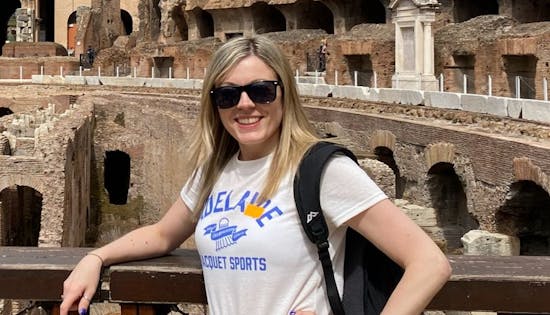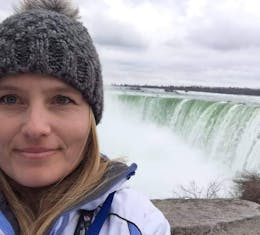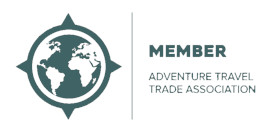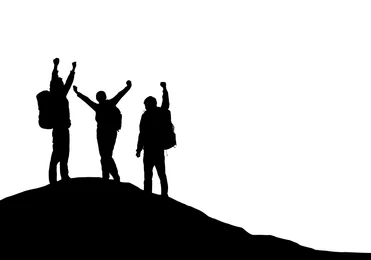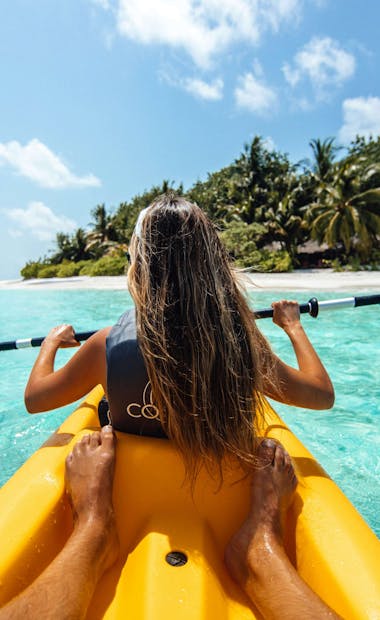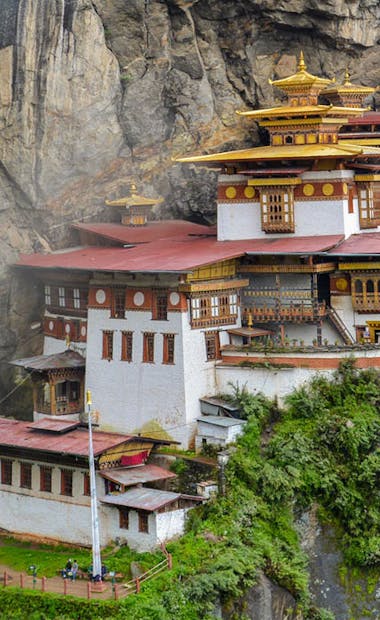
Bhutan Tours
A Himalayan Kingdom perfect for wildlife, trekking and cycling in spectacular scenery
Popular tours
- Save31%
 View Tour
View TourHike the Trans Bhutan Trail - 11 Days
- Thimphu to Paro
- Age group: 15 - 99
- Max group size: 16
Was:£3,580From£2,481 - Save21%
 View Tour
View TourJourneys: Wonders of Bhutan - 10 Days
- Paro to Paro
- Age group: 12 - 100
- Max group size: 15
Was:£3,999From£3,167 - Save16%
 View Tour
View TourHighlights of the Trans Bhutan Trail - 12 Days
- Paro to Paro
- Age group: 12 - 100
- Max group size: 15
Was:£3,899From£3,281 - Save11%
 View Tour
View TourCamp the Trans Bhutan Trail - 11 Days
- Paro to Paro
- Age group: 12 - 100
- Max group size: 15
Was:£3,299From£2,939 - Save1%
 View Tour
View TourPremium Bhutan - 9 Days
- Thimphu to Paro
- Age group: 15 - 99
- Max group size: 12
Was:£3,635From£3,599 - Save1%
 View Tour
View TourBhutan Discovered - 7 Days
- Thimphu to Paro
- Age group: 15 - 99
- Max group size: 12
Was:£2,245From£2,223
Bhutan Tours
Step into the mystical land of Bhutan and embark on a journey unlike any other. Nestled in the breath-taking Himalayas, Bhutan is a land of captivating landscapes, vibrant traditions, and untouched natural beauty. As a travel destination, Bhutan offers a unique and authentic experience that will leave you enchanted and inspired.
Our Bhutan tours and holidays are designed to immerse you in the magic of this extraordinary kingdom. Explore ancient monasteries perched on dramatic cliffs, wander through traditional markets bursting with colourful textiles and handicrafts, and trek through pristine mountain trails that lead to hidden valleys and serene villages. Bhutan is a treasure trove of cultural heritage and natural wonders waiting to be discovered.
One of the main attractions in Bhutan is the iconic Tiger's Nest Monastery, also known as Paro Taktsang. This sacred site clings precariously to a cliffside, offering breath-taking views and a sense of spiritual serenity. Trekking to Tiger's Nest is a transformative experience, taking you through lush forests and across suspension bridges as you ascend to this revered pilgrimage site.
Bhutan's capital city, Thimphu, showcases a blend of tradition and modernity. Explore the bustling streets, adorned with traditional architecture and colourful prayer flags fluttering in the breeze. Visit the majestic Tashichho Dzong, a fortress-monastery that serves as the seat of government and religion. Discover the vibrant arts and crafts scene, with opportunities to witness traditional Bhutanese painting, wood carving, and weaving.
For a glimpse into Bhutan's rural charm, venture to the idyllic valley of Punakha. Here, you'll find Punakha Dzong, an architectural masterpiece nestled at the confluence of two rivers. Traverse the Punakha Suspension Bridge, one of the longest suspension bridges in Bhutan, and soak in the tranquil ambiance of this picturesque valley.
Bhutan's commitment to preserving its cultural heritage is evident in its annual festivals, known as Tshechus. These vibrant celebrations feature masked dances, music, and religious rituals, offering a window into Bhutanese culture and spirituality. Join in the festivities, adorned in traditional attire, and witness the country come alive with colour, joy, and devotion.
But it's not just the stunning landscapes and rich traditions that make Bhutan an extraordinary destination. Bhutan is renowned for its philosophy of Gross National Happiness (GNH), which prioritizes the well-being and happiness of its people above all else. This unique approach to governance and development sets Bhutan apart, offering a refreshing perspective on life's priorities and values.
Visiting Bhutan is an opportunity to reconnect with nature, experience genuine hospitality, and witness a way of life rooted in harmony and mindfulness. Our Bhutan tours and holidays are crafted to ensure you have an immersive and authentic experience, with knowledgeable guides and carefully curated itineraries that showcase the best of this enchanting kingdom.
Embark on a journey of discovery, spirituality, and wonder. Explore the hidden gems of Bhutan, immerse yourself in its ancient traditions, and be captivated by its awe-inspiring beauty. Discover why Bhutan is a destination that will touch your soul and leave an indelible mark on your heart. Choose our Bhutan tours and holidays and let us take you on a transformative adventure that will leave you with memories to treasure for a lifetime.
When is the best time to visit Bhutan?
The best time to visit Bhutan depends on your preferences and the experiences you seek. Bhutan's climate varies across its regions, ranging from subtropical in the south to alpine in the north. Here are the different seasons in Bhutan:Spring (March to May): Spring is a beautiful time to visit Bhutan when the valleys come alive with colourful blooms and lush greenery. The weather is generally pleasant, with mild temperatures and occasional showers. It's an ideal time for nature enthusiasts, as you can witness the rhododendrons and other wildflowers in full bloom.
Summer (June to August): Summer in Bhutan brings warmer temperatures and occasional rainfall. The landscapes are vibrant and lush, and the countryside is dotted with terraced rice fields. It's a good time for trekking and experiencing Bhutan's rural life. However, do note that summer is also the monsoon season, so be prepared for intermittent rain showers.
Autumn (September to November): Autumn is considered the best time to visit Bhutan. The weather is generally clear and dry, offering stunning views of the mountains and valleys. The autumn foliage paints the landscapes with vibrant shades of red, orange, and gold, creating a picturesque setting. It's a popular time for festivals, including the famous Thimphu Tshechu, where you can witness Bhutanese culture and traditions at their finest.
Winter (December to February): Winter in Bhutan brings colder temperatures, especially in the higher regions. However, it also offers clear skies and spectacular views of snow-capped mountains. It's a quieter time to visit, with fewer tourists, and a great opportunity to explore Bhutan's cultural sites without the crowds. Do note that some high-altitude passes may be closed due to snowfall.
Ultimately, the best time to visit Bhutan depends on your preferences. If you prefer pleasant weather, blooming flowers, and clear views, consider visiting during spring or autumn. For a quieter experience and opportunities for winter activities like trekking and cultural exploration, the winter season can be rewarding. Regardless of the season, Bhutan's natural and cultural wonders will leave you spellbound.
Will I need a visa to travel to Bhutan?
Yes, travellers planning to visit Bhutan will need a visa. However, unlike many other countries, you cannot apply for a visa independently. The Bhutanese government regulates tourism through a policy known as "High-Value, Low-Impact Tourism."
To obtain a visa for Bhutan, you must book your trip through a licensed Bhutanese tour operator. The tour operator will handle the visa application process on your behalf. It is necessary to provide the tour operator with a clear passport copy and other required information to initiate the visa process.
Once your tour operator confirms your travel arrangements and visa application, they will receive a visa clearance letter from the Tourism Council of Bhutan. This letter will be sent to you before your trip, and you will need to present it upon arrival at the immigration checkpoint in Bhutan. The actual visa will then be stamped in your passport.
It's important to note that individual travellers are not permitted to travel to Bhutan without booking a pre-arranged tour through a licensed tour operator. The tour operator will handle all the necessary arrangements, including accommodation, transportation, and guiding services.
Therefore, if you're interested in traveling to Bhutan, it's advisable to contact a licensed Bhutanese tour operator who can guide you through the visa application process and help plan your trip according to your preferences and interests.
What are the must see destinations in Bhutan?
Bhutan is a land of awe-inspiring landscapes and cultural treasures, offering a wealth of must-see destinations that will leave you enchanted. Here are some of the top attractions and must-visit destinations in Bhutan:
Paro: Paro is a picturesque valley and the gateway to Bhutan for most international visitors. The iconic Tiger's Nest Monastery (Paro Taktsang) is the highlight here, perched dramatically on a cliffside. It's a challenging yet rewarding hike that takes you through scenic trails surrounded by lush forests and offers breathtaking views.
Thimphu: Bhutan's capital city, Thimphu, blends tradition with modernity. Explore the bustling streets and visit landmarks like the majestic Tashichho Dzong, which houses the throne room and government offices. Don't miss the National Memorial Chorten, a sacred Buddhist site, and the vibrant markets offering local handicrafts and textiles.
Punakha: Located in a fertile valley, Punakha is known for Punakha Dzong, a stunning fortress-monastery situated at the confluence of two rivers. This architectural marvel and its scenic surroundings make Punakha a must-visit destination. You can also explore the Chimi Lhakhang temple, known as the "Fertility Temple," and enjoy the serene beauty of the valley.
Bumthang Valley: Bumthang is a region consisting of four main valleys (Chokhor, Tang, Ura, and Chhume) known for their historical and spiritual significance. Visit the sacred Jambay Lhakhang and Kurjey Lhakhang, explore the ancient town of Jakar, and enjoy the scenic landscapes and traditional villages. Bumthang is also a great base for hiking and witnessing traditional festivals.
Phobjikha Valley: Located at an altitude of 3,000 meters, Phobjikha Valley is a breathtaking glacial valley and a designated conservation area. It is the winter home of the endangered black-necked cranes, which migrate here from Tibet. Explore the Gangtey Monastery, take nature walks, and immerse yourself in the tranquility and natural beauty of the valley.
Haa Valley: Nestled in the western part of Bhutan, the Haa Valley offers stunning views of alpine meadows, forests, and traditional Bhutanese villages. Visit Lhakhang Karpo (White Temple) and Lhakhang Nagpo (Black Temple), two sacred sites of Haa. The valley is also renowned for its cultural festivals and offers opportunities for hiking and exploring the local way of life.
Trongsa: Located in central Bhutan, Trongsa is a historically significant town and home to the impressive Trongsa Dzong. Explore the fortress-monastery, which played a crucial role in Bhutan's history, and visit the Ta Dzong, a watchtower converted into a museum showcasing Bhutanese artifacts and history.
These are just a few highlights of Bhutan's captivating destinations. Each region of Bhutan offers its own unique charm, stunning landscapes, and cultural experiences. Whether you explore the western valleys or venture into the remote eastern regions, Bhutan promises a journey of discovery and wonder.
What is the local currency in Bhutan, and can I use credit cards?
The local currency in Bhutan is the Bhutanese Ngultrum (BTN). However, Indian Rupees (INR) are also widely accepted in Bhutan, as the two currencies have a 1:1 exchange rate. It is advisable to carry a combination of Bhutanese Ngultrum and Indian Rupees for your transactions within the country.
As for credit cards, they are accepted in some hotels, high-end restaurants, and larger shops in major towns such as Thimphu and Paro. Visa and Mastercard are the most commonly accepted cards. However, it's important to note that credit card acceptance can be limited in smaller towns and remote areas. Therefore, it's always wise to carry sufficient cash, especially if you plan to visit rural or less touristy regions.
It is recommended to exchange your currency or withdraw cash in Bhutan, as it may not be possible to find Bhutanese Ngultrum or Indian Rupees outside the country. Banks and authorized foreign exchange counters are available in major cities and towns for currency exchange.
Additionally, it's advisable to inform your bank and credit card company about your travel plans to Bhutan to avoid any issues with using your cards. It's also worth noting that some ATMs in Bhutan may have limited availability, so it's a good idea to carry enough cash for your immediate needs.
Overall, while credit cards can be used in certain establishments, it's always prudent to carry a mix of cash (in Bhutanese Ngultrum or Indian Rupees) and a credit card for convenience and to ensure you have the means to make payments throughout your trip.
Is Bhutan a good family holiday destination?
Absolutely! Bhutan is a fantastic family holiday destination that offers a unique and enriching experience for travellers of all ages. Here are a few reasons why Bhutan is an excellent choice for a family vacation:Safe and Welcoming: Bhutan is known for its warm hospitality and friendly locals, making it a safe and welcoming destination for families. The low crime rate and peaceful environment add to the sense of security, allowing families to explore and enjoy their time together.
Cultural Immersion: Bhutan's rich cultural heritage and traditions provide a valuable learning opportunity for children and adults alike. Visiting ancient temples, witnessing traditional festivals, and interacting with locals offer a chance to immerse in Bhutanese culture and gain a deeper understanding of the world.
Outdoor Adventures: Bhutan's pristine natural landscapes and rugged mountains provide a wide range of outdoor activities suitable for families. From gentle nature hikes to thrilling treks, there are options for every skill level. Families can bond while exploring Bhutan's stunning valleys, forests, and rivers, creating unforgettable memories.
Wildlife and Nature: Bhutan's commitment to environmental conservation ensures the preservation of its unique flora and fauna. Wildlife sanctuaries and national parks offer opportunities to spot rare species such as the takin, red panda, and various bird species. Kids will be fascinated by the diverse ecosystems and the chance to see animals in their natural habitats.
Educational Experiences: Bhutan's emphasis on sustainable development and Gross National Happiness provides valuable lessons in environmental conservation, community-based tourism, and holistic well-being. Engaging with local communities, visiting traditional farms, and participating in cultural workshops offer educational insights into Bhutan's values and way of life.
Quality Time and Bonding: Bhutan's serene and unspoiled environment allows families to disconnect from the hustle and bustle of everyday life and spend quality time together. Whether it's strolling through picturesque valleys, sharing meals with local families, or simply enjoying the tranquillity, Bhutan provides a peaceful setting for family bonding.
Special Family-Friendly Services: Many tour operators in Bhutan offer customized itineraries and services specifically designed for families. These may include accommodations with family rooms or interconnecting rooms, child-friendly activities, and experienced guides who understand the needs of families.
Bhutan's family-friendly atmosphere, cultural richness, outdoor adventures, and educational experiences make it an ideal destination for families seeking a unique and meaningful vacation. It's a place where children can learn, explore, and create lifelong memories alongside their loved ones.
Is Bhutan a good destination for solo travellers?
Yes, Bhutan is a wonderful destination for solo travellers seeking a unique and enriching experience. Here are some reasons why Bhutan is a great choice for solo exploration:Warm and Welcoming Culture: Bhutanese people are known for their warmth, friendliness, and hospitality. As a solo traveller, you'll be embraced by the locals, who are always eager to share their culture and traditions. You'll have plenty of opportunities to engage in conversations, learn about Bhutanese life, and form connections with the local community.
Safe and Peaceful Environment: Bhutan is one of the safest countries in the world, with a low crime rate and a strong emphasis on maintaining peace and harmony. As a solo traveller, you can explore the country with peace of mind, knowing that you are in a secure environment where people genuinely care for your well-being.
Cultural Immersion: Bhutan offers a rich cultural heritage and unique traditions that solo travellers can fully immerse themselves in. From visiting ancient monasteries and dzongs to witnessing colourful festivals, you'll have the opportunity to connect with Bhutanese culture on a deeper level. The peaceful ambiance of monastic settings also offers a chance for self-reflection and introspection.
Scenic Beauty and Outdoor Adventures: Bhutan's breath-taking landscapes, from lush valleys to snow-capped mountains, provide a stunning backdrop for solo exploration. Whether you enjoy hiking, trekking, or simply immersing yourself in nature, Bhutan offers numerous outdoor adventures. From the famous Tiger's Nest Monastery hike to exploring remote valleys, solo travellers can embrace the beauty and serenity of Bhutan's natural wonders.
Personal Reflection and Spiritual Growth: Bhutan's emphasis on Gross National Happiness and spiritual well-being makes it an ideal destination for solo travellers seeking personal reflection and growth. The tranquil monasteries, meditation centres, and the overall peaceful atmosphere provide opportunities for self-discovery, mindfulness, and inner exploration.
Tailored Experiences: Bhutanese tour operators offer tailored itineraries and services, ensuring that solo travellers have a well-planned and personalized experience. From arranging accommodation to providing knowledgeable guides, these operators cater to the unique needs and interests of solo travellers.
Unique Perspectives: Traveling solo allows you to experience Bhutan at your own pace and follow your own interests. You can delve into the local culture, interact with the Bhutanese people, and discover hidden gems that resonate with you personally. Bhutan offers a space for introspection and a chance to connect with yourself and the world around you.
As a solo traveller in Bhutan, you'll have the freedom to explore, connect with the local culture, and create unforgettable memories. The country's welcoming atmosphere, safety, and opportunities for personal growth make it a fantastic destination for those seeking a transformative solo journey.
Is Bhutan a safe destination?
Yes, Bhutan is considered a safe destination for travellers. The country has a reputation for being one of the safest in the world with a low crime rate. Bhutanese people are known for their warm hospitality and friendly nature, and visitors often feel welcomed and well taken care of during their stay.
The Bhutanese government places a strong emphasis on maintaining peace and harmony within the country. This commitment to national security and safety contributes to the overall sense of safety for both locals and tourists. It is common to see people, including solo travellers, exploring Bhutan's cities, towns, and rural areas without encountering any major safety concerns.
However, as with any travel destination, it is important to exercise normal precautions and take basic safety measures. It is advisable to stay vigilant, especially in crowded areas, and take care of your belongings. While Bhutan is generally safe, it's always a good idea to follow common-sense guidelines, such as staying in well-lit areas at night and avoiding isolated or unfamiliar places.
It's also recommended to travel with a reputable tour operator who can provide guidance and assistance throughout your trip. They can help ensure that you have a smooth and secure travel experience, and they have local knowledge that can be valuable in terms of safety and navigating any potential challenges.
Overall, Bhutan's commitment to safety, combined with its friendly and welcoming atmosphere, makes it a safe destination for travellers. With sensible precautions and by respecting the local customs and traditions, you can enjoy your time in Bhutan with peace of mind.
Will I require any vaccinations to travel to Bhutan?
Yes, it is recommended to have certain vaccinations before traveling to Bhutan. However, the specific vaccinations you may need can vary depending on various factors, including your home country, current health status, and the duration of your stay. It is advisable to consult with a healthcare professional or a travel health clinic well in advance of your trip to get personalized advice based on your individual needs.
Generally, the following vaccinations are commonly recommended for travelers to Bhutan:
Routine Vaccinations: Ensure that your routine vaccinations, such as measles-mumps-rubella (MMR), diphtheria-tetanus-pertussis, varicella (chickenpox), and polio vaccinations, are up to date. These vaccinations are important regardless of your travel destination.
Hepatitis A and B: Vaccinations for hepatitis A and B are recommended for most travelers, as these diseases can be contracted through contaminated food, water, or bodily fluids.
Typhoid: Typhoid fever can be transmitted through contaminated food and water, so getting vaccinated against typhoid is advisable, especially if you plan to explore rural areas or consume street food.
Rabies: If you anticipate close contact with animals, such as stray dogs or wildlife, or if you plan to engage in outdoor activities that may increase the risk of animal bites, it is worth considering a rabies vaccination. However, it's important to note that the risk of rabies in Bhutan is generally low.
Influenza: Influenza viruses can be found worldwide, so it is recommended to get an influenza vaccination before your trip, particularly during the flu season.
Again, it is essential to consult with a healthcare professional or a travel health clinic to determine the most appropriate vaccinations for your specific circumstances. They will consider factors such as your medical history, current health status, and any previous vaccinations you may have received.
Additionally, it's advisable to follow general hygiene practices, such as washing hands regularly, drinking safe and clean water, and practicing safe food handling, to minimize the risk of illnesses during your trip to Bhutan.
How does the rooming work on tours?
Small group tours in Bhutan typically involve a set itinerary where you travel with a group of fellow travellers and a tour leader/guide. Accommodation arrangements vary depending on the specific tour you choose. Here are some common aspects of rooming arrangements on small group tours:
Shared Rooms: In order to promote camaraderie and facilitate interaction among group members, most tours arrange shared accommodation. This means you will be paired with another member of the same gender from the group to share a room. Roommates may sometimes change periodically throughout the tour.
Single Supplement: If you prefer to have your own room and privacy, you may have the option to pay a single supplement fee. This additional fee allows you to have your own room for the duration of the tour. However, please note that single supplements can vary in cost and availability.
Roommate Matching: Tour operators usually offer roommate matching services, where they try to pair you with a suitable roommate based on your preferences, such as age range. This can help ensure compatibility and a more enjoyable experience for all participants.
Rooming Preferences: When booking your small group tour, it's important to communicate your rooming preferences to the tour operator. If you have specific requirements or preferences, such as sharing with a friend or a specific roommate request, it's advisable to inform the tour operator during the booking process.
It's important to carefully read the tour details and inclusions provided by the tour operator to understand their specific rooming policies. If having your own room is a priority, make sure to inquire about the availability of single supplements and any associated costs before booking your tour.
Keep in mind that while sharing a room with a fellow traveller can be a great way to meet new people and build connections, having your own room provides more privacy and flexibility. Consider your preferences and the dynamics of the tour when deciding whether to opt for a shared room or pay for a single supplement.
Remember to communicate your needs and preferences clearly with the tour operator during the booking process to ensure a comfortable and enjoyable accommodation experience on your small group tour in Bhutan.
What is the food like in Bhutan?
Bhutanese cuisine is a delightful blend of flavours, influenced by the country's unique geography, culture, and traditional practices. The food in Bhutan is known for its spiciness, rich flavour, and use of locally sourced ingredients. Here's a glimpse into the culinary delights you can expect to savour in Bhutan:
Ema Datshi: Considered the national dish of Bhutan, Ema Datshi is a spicy and cheesy delight. It consists of chili peppers cooked with a generous amount of Bhutanese cheese, creating a fiery and flavourful combination. This dish is a favourite among locals and visitors alike.
Red Rice: Bhutanese meals often feature red rice, which is a staple in the country. This nutritious and slightly nutty-flavoured rice is grown locally and is a perfect accompaniment to various dishes.
Momos: These delicious dumplings are a popular snack in Bhutan. Momos are usually filled with vegetables, cheese, or meat, and are served steamed or fried. They are often enjoyed with a spicy dipping sauce.
Phaksha Paa: Phaksha Paa is a mouth-watering pork dish cooked with spicy red chili peppers and radishes. It offers a unique blend of flavours and is a must-try for meat lovers.
Jasha Maroo: This is a spicy chicken dish prepared with a blend of Bhutanese spices, onions, and tomatoes. The flavours are robust and aromatic, making it a delightful treat for your taste buds.
Suja (Butter Tea): Suja is a traditional Bhutanese tea made with butter, salt, and tea leaves. It has a distinct flavour and is often served to guests as a welcoming gesture. It's an acquired taste but worth trying to experience an authentic Bhutanese beverage.
Ara: Ara is a locally brewed rice wine that holds a special place in Bhutanese culture. It is made from fermented rice and has a unique taste. Ara is often consumed during celebrations and festivals.
In addition to these traditional dishes, Bhutan also offers a variety of fresh fruits, vegetables, and dairy products. Bhutanese cuisine is known for its use of organic and locally sourced ingredients, making it a wholesome and healthy dining experience.
While Bhutanese food can be spicy, it can often be adjusted to suit different taste preferences. If you prefer milder flavours, you can request for dishes to be prepared with less spice.
Exploring the diverse flavours of Bhutanese cuisine is an integral part of immersing yourself in the country's culture and traditions. Whether you try the fiery Ema Datshi, savour the flavours of Bhutanese rice dishes, or indulge in momos, your culinary journey through Bhutan will be a memorable one.
Can I drink the tap water in Bhutan?
It is generally not recommended to drink tap water in Bhutan. While the water quality in urban areas has improved over the years, it is still advisable to err on the side of caution and opt for bottled or filtered water to avoid any potential health issues.To stay hydrated and ensure safe drinking water, you can rely on bottled water, which is readily available in most hotels, restaurants, and shops throughout the country. It's a good practice to check the seal of the bottled water before purchasing to ensure its authenticity.
If you prefer to reduce plastic waste, you can also carry a reusable water bottle with a built-in filter or use water purification tablets to treat the tap water. These methods can help provide you with safe drinking water during your stay in Bhutan.
Additionally, when it comes to other water-related activities such as brushing your teeth or washing fruits and vegetables, it is recommended to use bottled or treated water to minimize the risk of consuming contaminated water.
It's important to prioritize your health and well-being during your trip, and taking precautions with drinking water is an essential part of that. By being mindful of the water you consume, you can ensure a safe and enjoyable experience in Bhutan.
Are there any cultural norms in Bhutan I should follow?
Yes, Bhutan has a unique cultural heritage, and it is important to respect and adhere to the local customs and norms during your visit. Here are some cultural norms to keep in mind while in Bhutan:Dress Code: Bhutanese people value modesty in attire. When visiting religious sites, it is customary to dress modestly and cover your shoulders and knees. Both men and women are advised to wear shirts with sleeves and avoid shorts or skirts that are above the knee. Wearing a traditional Bhutanese dress called a "kira" for women or a "gho" for men is highly appreciated and shows respect for the local culture.
Etiquette at Religious Sites: Bhutan is a deeply spiritual country with numerous monasteries and temples. When visiting these sacred sites, it is important to maintain a respectful and reverent demeanour. Remove your shoes before entering religious buildings, and avoid touching or photographing religious artefacts without permission. Be mindful of your actions and maintain a quiet and contemplative atmosphere.
Interaction with Locals: Bhutanese people are known for their warmth and hospitality. When engaging with locals, it is polite to greet them with a traditional "Kuzuzangpo la" (hello) and a slight bow. Be respectful in your conversations, and avoid sensitive topics such as politics or religion unless the locals bring them up first.
Photography: Bhutan offers stunning landscapes and cultural treasures that are worth capturing. However, it is important to be mindful of local customs and seek permission before taking photographs of individuals, especially monks and religious ceremonies. Some areas may have restrictions on photography, so it is best to ask for guidance from your guide or the locals.
Environmental Respect: Bhutan takes great pride in its pristine natural environment. It is essential to respect and preserve the environment during your visit. Avoid littering and dispose of waste properly. Follow designated trails and paths while trekking or exploring natural areas to minimize your impact on the environment.
Punctuality and Time Management: Bhutanese people value punctuality and respecting others' time. It is polite to arrive on time for scheduled activities, appointments, or meetings.
By observing and respecting these cultural norms, you can show your appreciation for Bhutan's rich traditions and create a positive and meaningful connection with the local people. It is always a good idea to learn more about the local customs and seek guidance from your tour guide or local hosts to ensure you have a culturally sensitive and enjoyable experience in Bhutan.
What should I pack for a trip to Bhutan?
When packing for a trip to Bhutan, it's important to consider the country's diverse climate, cultural norms, and the activities you plan to engage in. Here's a list of essential items to pack for your Bhutan adventure:
Layered Clothing: Bhutan experiences varying temperatures throughout the year, so it's advisable to pack layers of clothing. Include lightweight and breathable garments for warmer days, and pack warmer clothing such as sweaters, jackets, and thermals for colder temperatures, especially if you plan to visit higher altitude areas.
Comfortable Walking Shoes: Bhutan offers incredible opportunities for hiking and exploring its natural beauty. Pack a sturdy pair of walking shoes or hiking boots that provide comfort and good traction for trekking or walking on uneven terrain.
Rain Gear: Bhutan is known for its occasional rainfall, especially during the monsoon season. Pack a lightweight rain jacket or poncho to stay dry in case of unexpected showers.
Sun Protection: Bhutan has high elevations, and the sun can be quite strong. Pack sunscreen with a high SPF, a hat, sunglasses, and lip balm with SPF to protect yourself from the sun's rays.
Daypack or Backpack: A small daypack or backpack will come in handy for carrying your essentials during day trips, hikes, or visits to monasteries. Ensure it is comfortable to carry and has enough space for water, snacks, and your camera.
Travel Adapter: Bhutan generally uses Type D and Type G power outlets. Check the specific type required and pack a suitable travel adapter to charge your electronic devices.
Medications and First Aid Kit: If you have any prescribed medications, be sure to pack an adequate supply for the duration of your trip. It's also wise to bring a basic first aid kit that includes band-aids, pain relievers, antiseptic wipes, and any personal medications you may need.
Travel Documents: Keep your passport, visa (if required), and other important travel documents organized and easily accessible. It's also a good idea to carry a photocopy or digital backup of your documents.
Toiletries and Personal Items: Pack your essential toiletries, including toothbrush, toothpaste, soap, shampoo, and any other personal items you may need. It's recommended to bring hand sanitizer or wet wipes for hygiene purposes, especially when traveling to remote areas.
Cash and Debit/Credit Cards: While major towns in Bhutan have ATMs and accept credit cards, it's advisable to carry some cash, preferably in the local currency (Bhutanese Ngultrum). Inform your bank about your travel plans to ensure your cards are authorized for use in Bhutan.
Travel Guidebooks or Maps: Consider bringing a travel guidebook or maps to learn more about Bhutan's history, culture, and attractions. They can be helpful resources during your exploration.
Remember to pack according to the season and activities you plan to engage in. If you are trekking or participating in adventure activities, additional items such as a sleeping bag, trekking poles, and appropriate gear may be necessary. Finally, pack with respect for the local culture and customs, keeping in mind the modest dress code and the need for appropriate attire when visiting religious sites.
It's always a good idea to check the weather forecast before your trip and consult with your tour operator or travel agency for any specific recommendations based on the season and itinerary.


Book With Confidence
Monthly Payments
Spread the costs with no interest or additional fees
Best Price Guarantee
We won't be beaten on price. If you find this adventure at a lower price please get in touch!
Reserve now & pay later
Reserve your adventure today and pay later, free of charge
ATOL protected
Book with confidence
Hold your space today, for free
or book your trip with a deposit and then pay the rest in instalments.
Reserve your flights with us
Add flights to your booking and we'll take care of the rest. You'll get 24/7 support from our team & ATOL protection.
Speak to our experts
Call or email our expert team to find out more and help with ideas and planning.
